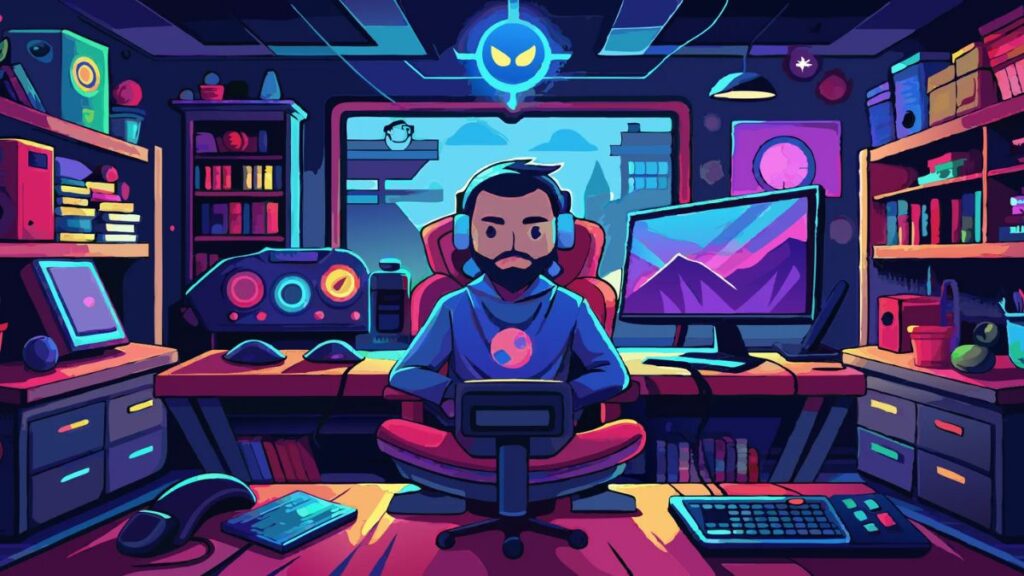The gaming world has evolved significantly over the years, not only in terms of graphics and storytelling but also in the way players interact with games. One of the most fascinating aspects of this evolution is the rise of game mods, or modifications. These user-created additions or changes to the original game content have opened up a whole new world of possibilities. Game mods are a true testament to the creativity of the gaming community, allowing players to push the boundaries of the original design and, in some cases, completely transform the game.
What Are Game Mods?
Game mods are alterations made to a video game by players or fans, typically designed to enhance or change the game’s functionality, appearance, or content. These modifications can range from minor changes, like tweaking the game’s interface or adding new skins for characters, to more complex mods that introduce new levels, game mechanics, or even entirely new storylines.
The term “mod” is short for “modification,” and mods are generally created by enthusiasts who have a deep understanding of the game’s coding or have access to modding tools provided by the developers. Game mods are typically shared within the gaming community, often for free, and can be easily installed on top of the base game, offering players a fresh experience without the need for a new release.
The Evolution of Game Mods
The concept of game mods can be traced back to the early days of PC gaming when players began creating custom levels or tweaks to improve their gaming experience. In the late 1990s and early 2000s, with the rise of more sophisticated game engines like the Quake Engine and Unreal Engine, modding reached a new level. Games like Half-Life and Quake became the foundation for some of the most iconic mods, including Counter-Strike and Team Fortress, both of which started as mods before evolving into standalone titles.
As technology advanced, so did the tools available to modders. Modern game engines like Unity and Unreal Engine now allow modders to create full-fledged mods with more flexibility and creativity than ever before. With the advent of digital distribution platforms like Steam, it has become easier for players to share and download mods, further expanding the modding community.
Why Do Players Create Mods?
The motivation behind creating game mods varies. For some players, it is a way to express their creativity. Modding allows them to add their unique ideas, characters, environments, and mechanics to games, creating entirely new experiences. For others, modding is a way to fix issues they see in a game, such as bugs, missing features, or balance problems. Some modders simply enjoy the technical challenge of modifying game code or working within a game engine.
Moreover, mods offer a platform for players to explore new gameplay mechanics and experiment with designs that would not be possible within the confines of the original game. This spirit of creativity often leads to the discovery of innovative features that can be adopted by developers in official game updates.
Types of Game Mods
Game mods come in many shapes and sizes, each offering something unique to the player. Below are some of the most popular types of mods found in the gaming community:
- Cosmetic Mods Cosmetic mods are the most common and typically the least invasive. These mods change the appearance of a game without altering its core mechanics. They include new character skins, texture packs, lighting effects, and user interface (UI) changes. For example, a modder might create a realistic texture pack for Minecraft, making the blocks look more like actual stone or wood, or they might design custom skins for The Sims, giving the characters new outfits.
- Gameplay Mods Gameplay mods introduce new features or mechanics that enhance or alter the original gameplay. These mods might include new weapons, abilities, quests, or even entirely new game modes. For instance, in Skyrim, modders have created entire new quest lines, adding hours of content to the already expansive game world. These mods often allow players to experience a fresh take on a game they have already played.
- Total Conversion Mods Total conversion mods are massive mods that completely overhaul the base game. These mods usually change the game’s setting, storyline, characters, and gameplay mechanics, often making the game feel like a completely different experience. An example of a total conversion mod is DayZ, which started as a mod for ARMA 2 and later became a standalone game. Another popular example is Garry’s Mod, which allows players to create and manipulate their own worlds using assets from other games.
- Bug Fixes and Enhancements Sometimes, players create mods simply to fix bugs or improve performance in a game. These mods might address issues like crashes, glitches, or slowdowns, or they might add missing features that fans feel should have been included in the original release. For example, modders often fix problems like outdated textures or missing voice lines in older games, making them more enjoyable to play.
- Multiplayer Mods Some mods are specifically designed to enhance or modify the multiplayer experience. These mods might introduce new game modes, balance adjustments, or even community-driven content like custom maps or characters. Counter-Strike, originally a multiplayer mod for Half-Life, is one of the most successful examples of a multiplayer mod becoming its own major franchise.
The Impact of Game Mods on the Gaming Industry
Game mods have had a profound impact on the gaming industry. For one, they have extended the life of many games. Titles that may have otherwise faded into obscurity are kept alive by a dedicated modding community, ensuring that players continue to enjoy new content long after the developers have moved on to other projects.
Moreover, some game developers have embraced mods, seeing them as a way to engage with their player base and encourage creativity. Games like The Elder Scrolls V: Skyrim and The Witcher 3 have thriving modding communities, with modding tools and official support from the developers. In fact, Skyrim’s Special Edition even includes an official modding platform through Steam, making it easier for players to find, install, and create mods.
Some developers even go as far as hiring talented modders, recognizing their creativity and technical skills. Notable examples include Valve hiring the creators of Counter-Strike and Dota, and Bungie hiring modders who worked on Halo mods. This cross-pollination between modding communities and professional development teams has led to exciting new opportunities for modders and a greater recognition of modding as a legitimate and important aspect of gaming culture.
Challenges and Controversies
While mods offer tremendous creative freedom, they are not without their challenges and controversies. One of the most significant issues is the legal grey area surrounding mods. Many games do not officially support mods, and in some cases, developers have taken legal action against modders for violating copyright or terms of service agreements. For example, when Valve tried to sell mods for Skyrim on Steam, it sparked an uproar from the community, leading to a reversal of the decision.
There are also concerns about the quality and compatibility of mods. Since mods are often created by amateurs, they can introduce bugs, performance issues, or crashes. Mods can also conflict with each other, making it difficult for players to use multiple mods at once. This has led to a rise in modding communities and platforms dedicated to helping players find and troubleshoot mods, such as Nexus Mods or the Steam Workshop.
Conclusion: The Future of Game Mods
The world of game mods is vast, dynamic, and constantly evolving. As game development tools become more accessible and the gaming community continues to grow, modding is only going to become more integral to the gaming experience. Mods allow players to stretch the limits of creativity, offering new experiences and even new games based on existing titles. While there are challenges and legal issues to navigate, the future of modding looks bright, as it continues to shape the way we play and interact with video games.
From creating new worlds to reimagining old ones, game mods showcase the boundless creativity of the gaming community. As long as developers continue to support modding and the community remains passionate, the world of game mods will undoubtedly keep thriving, providing a platform for endless innovation and creativity beyond the original design.



